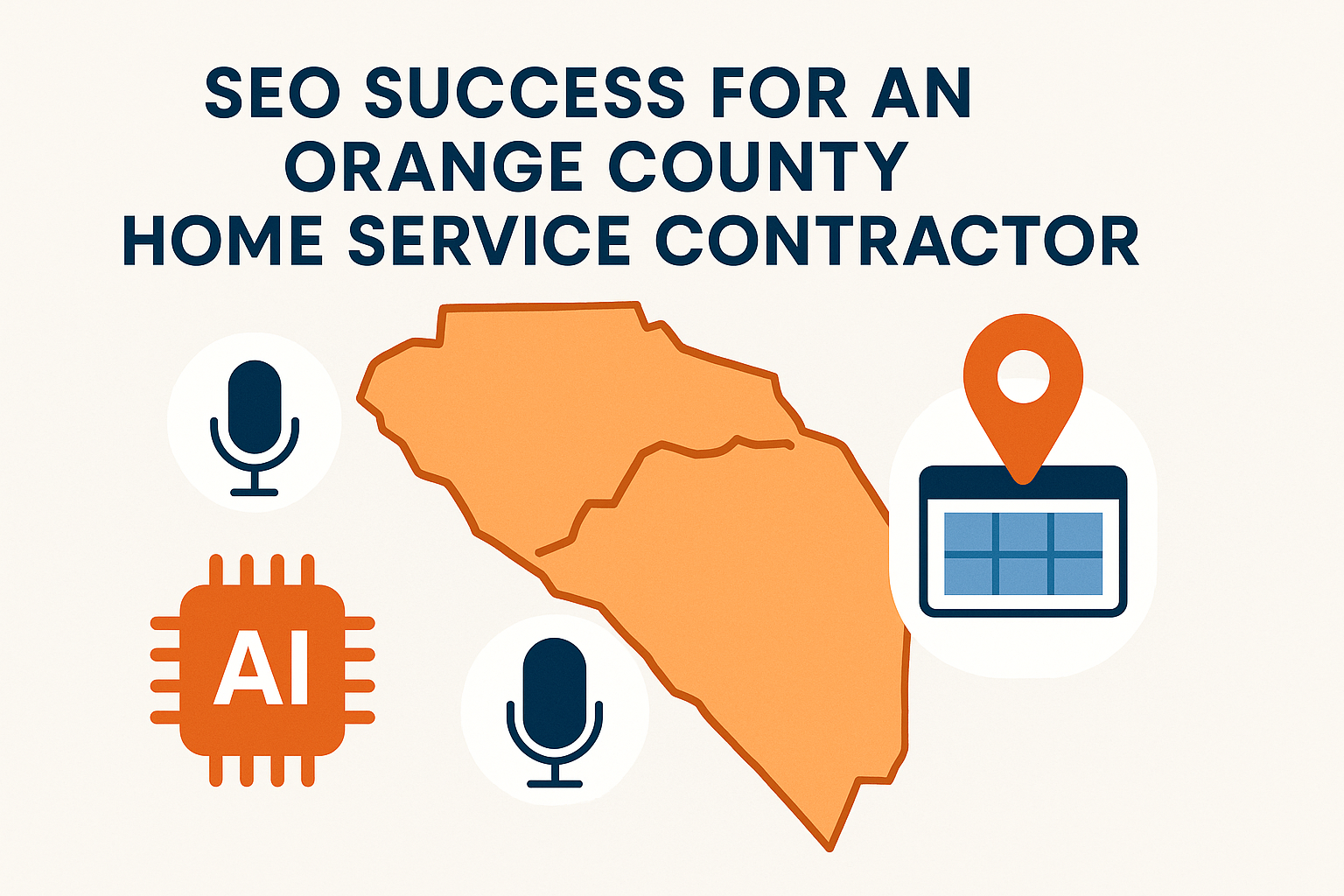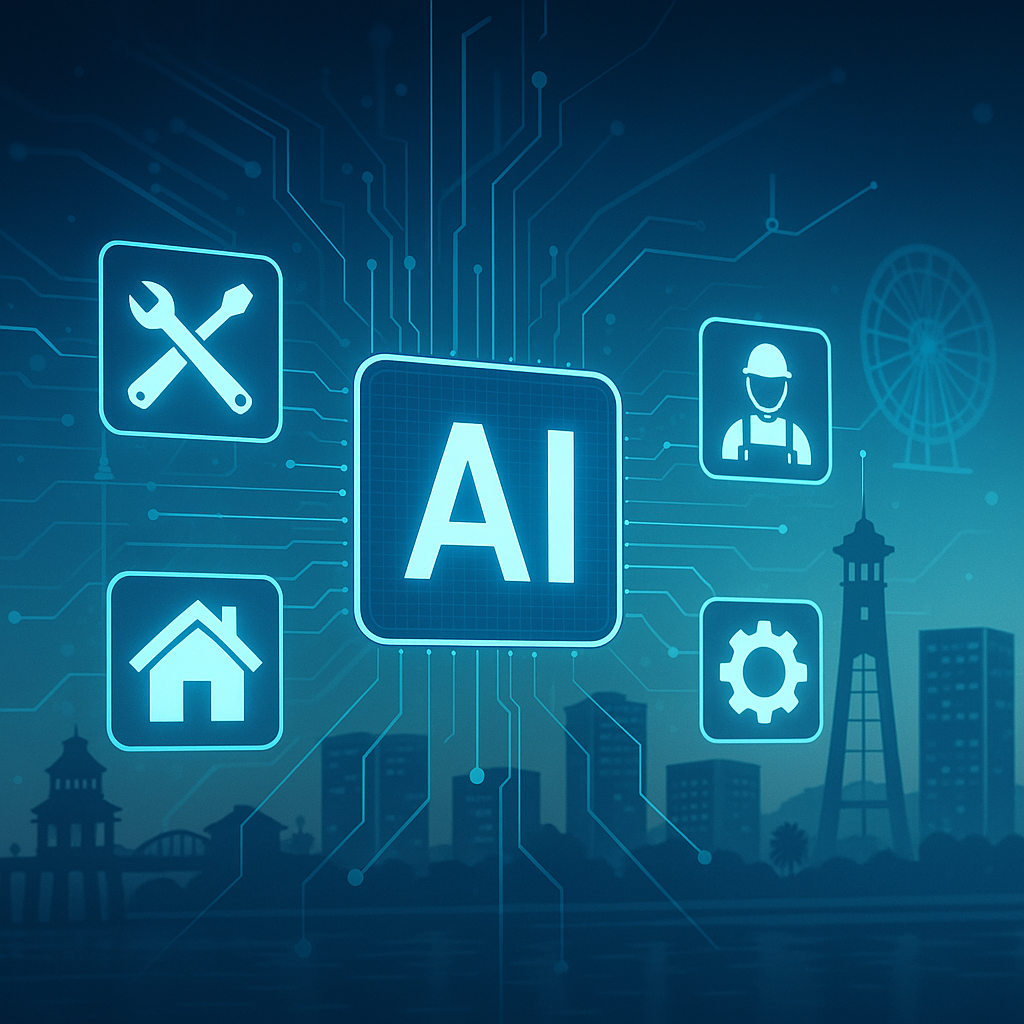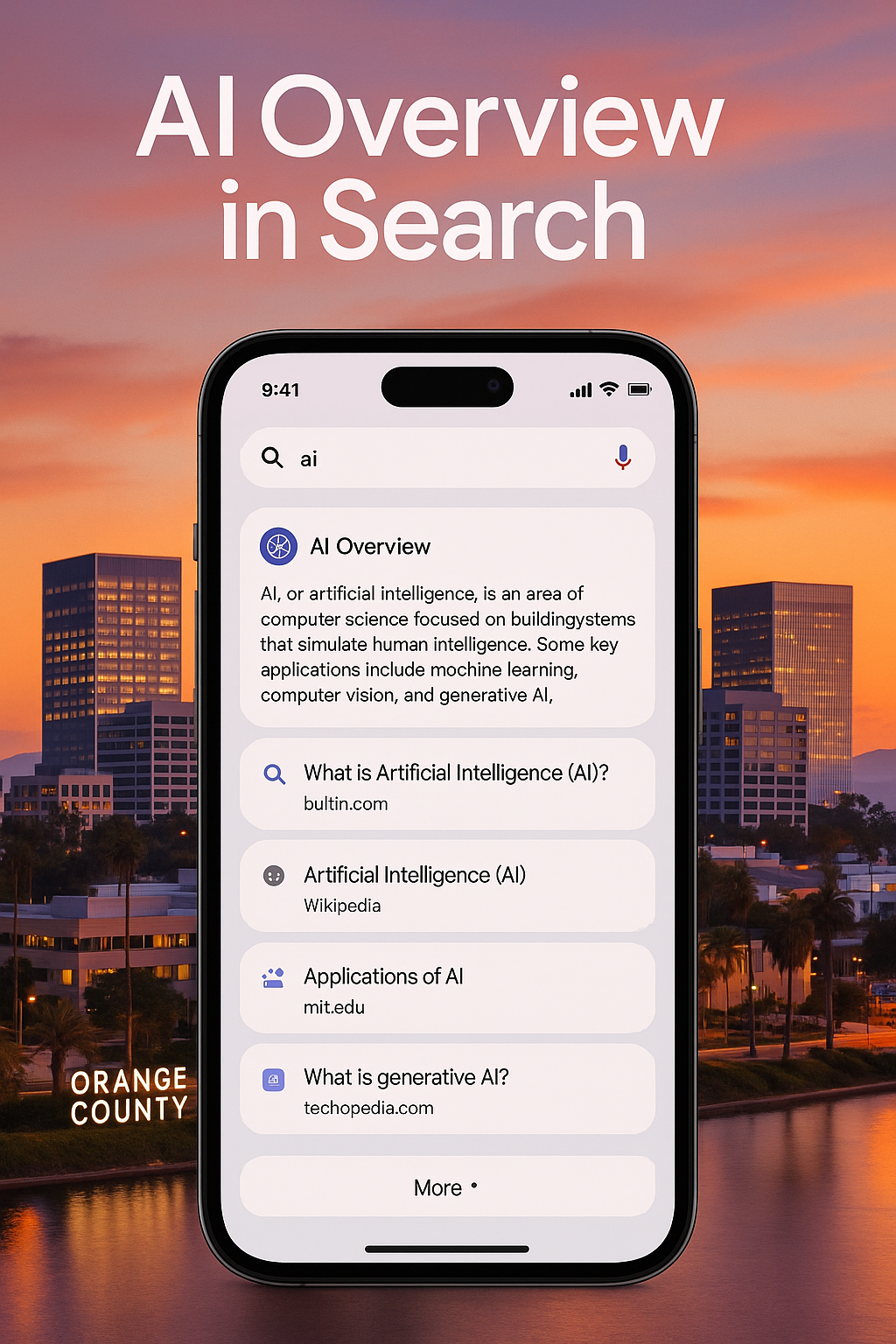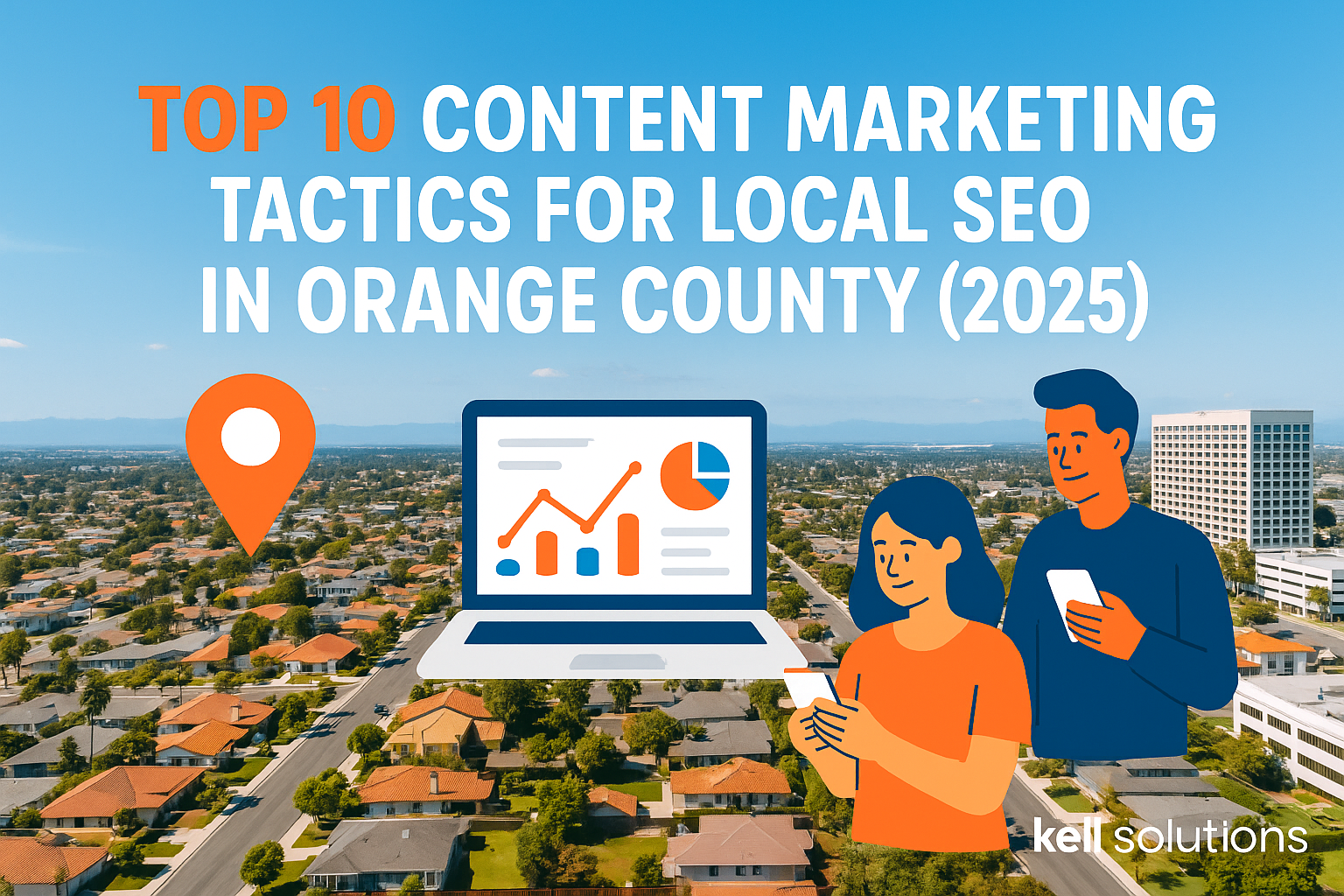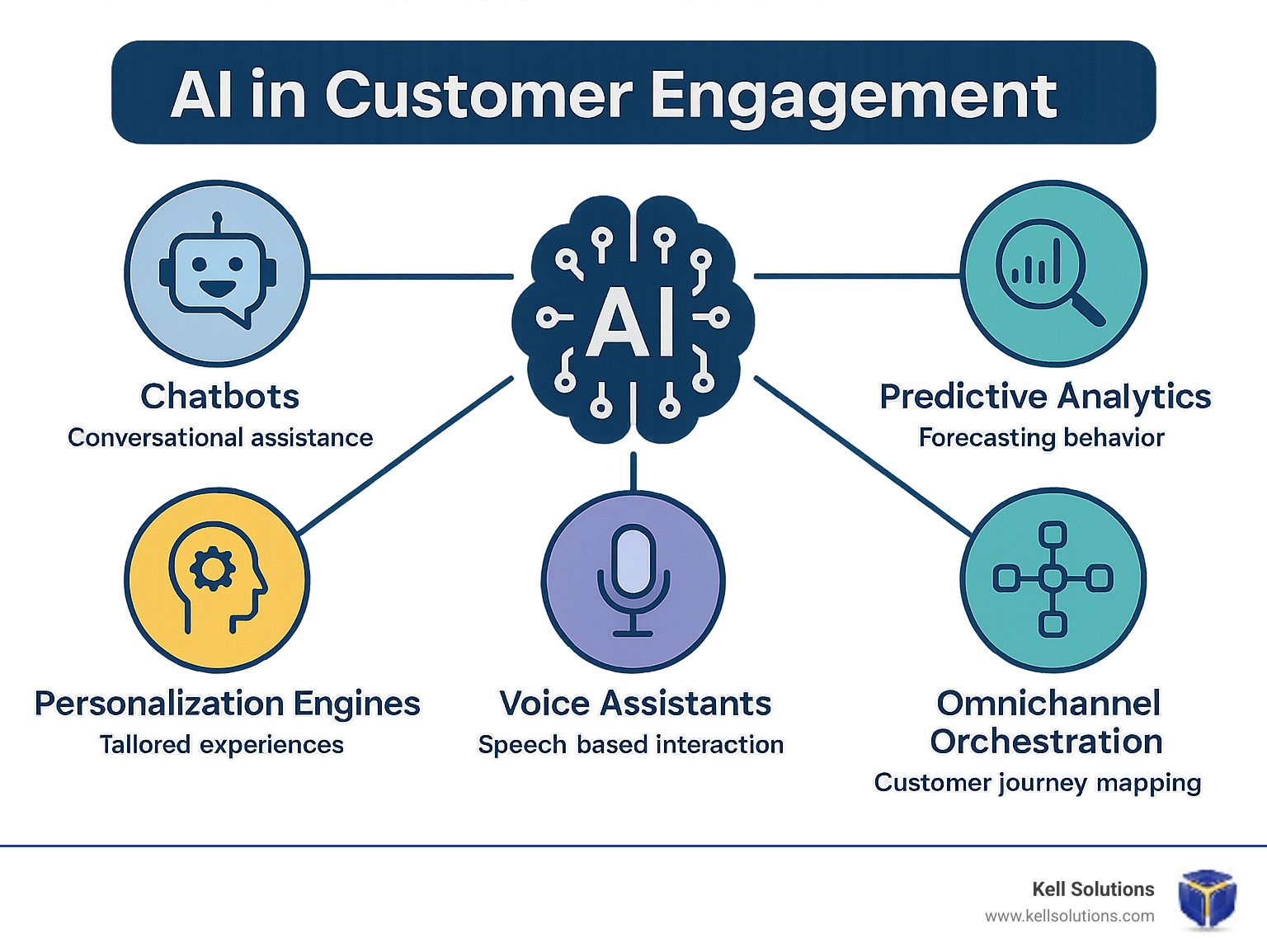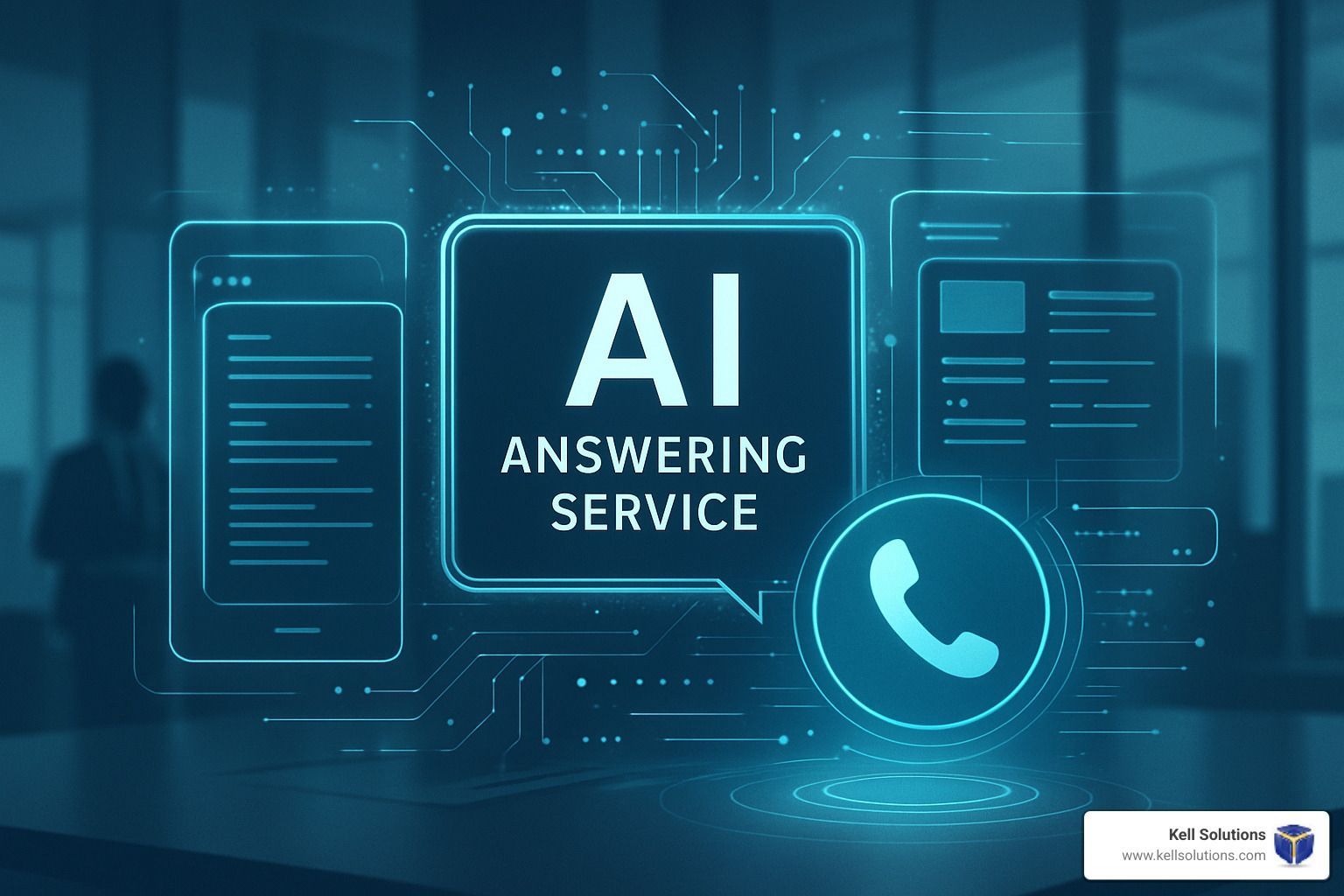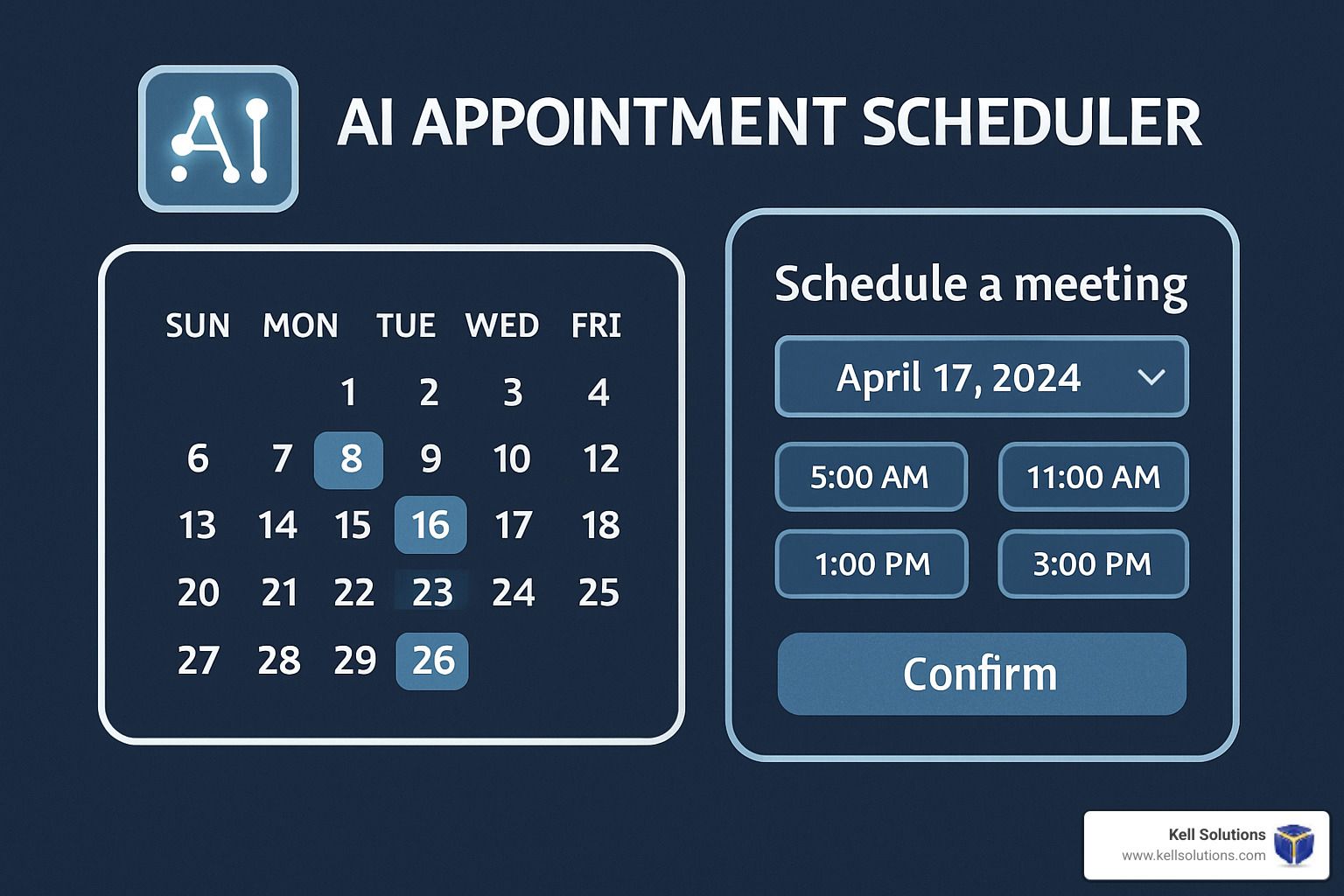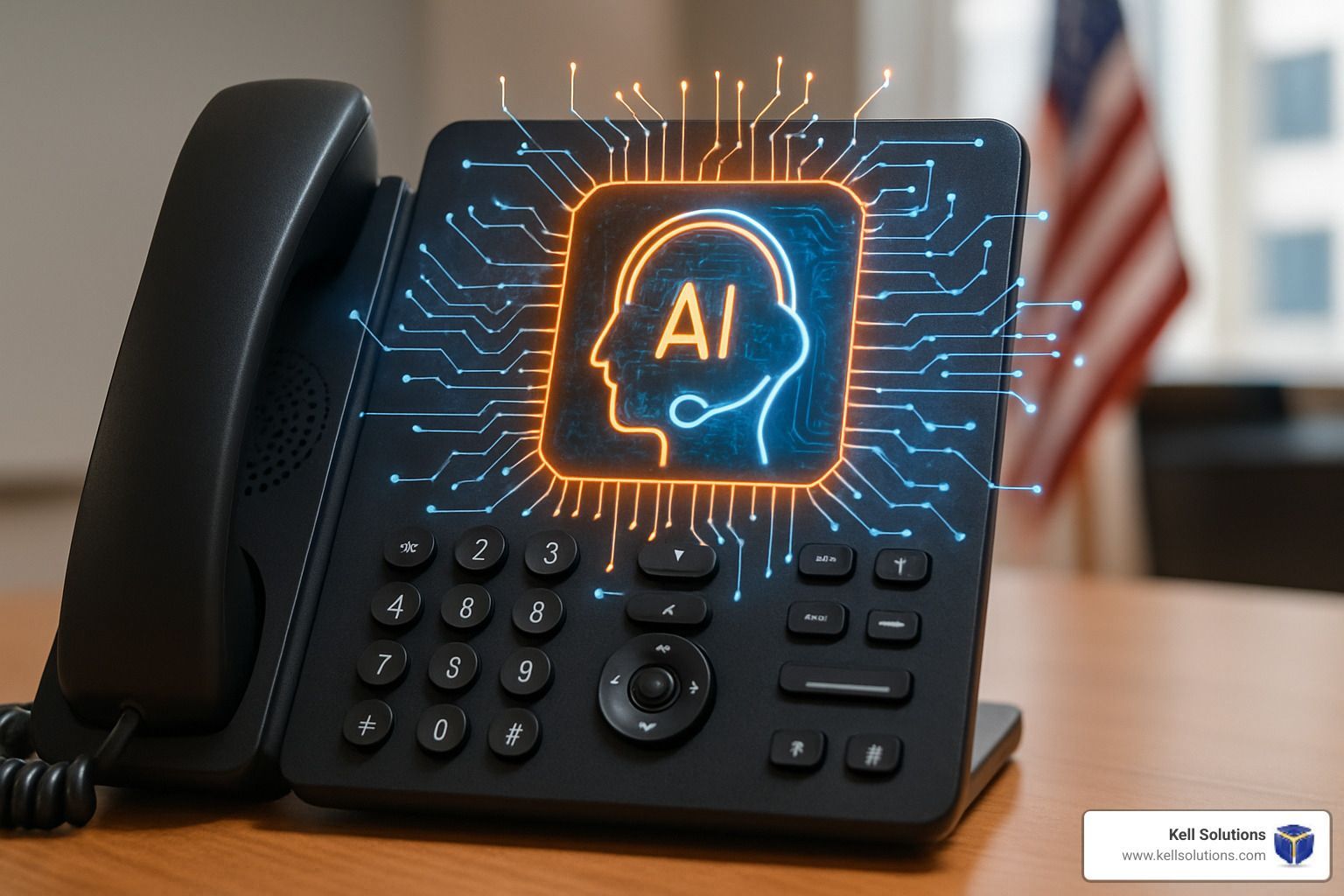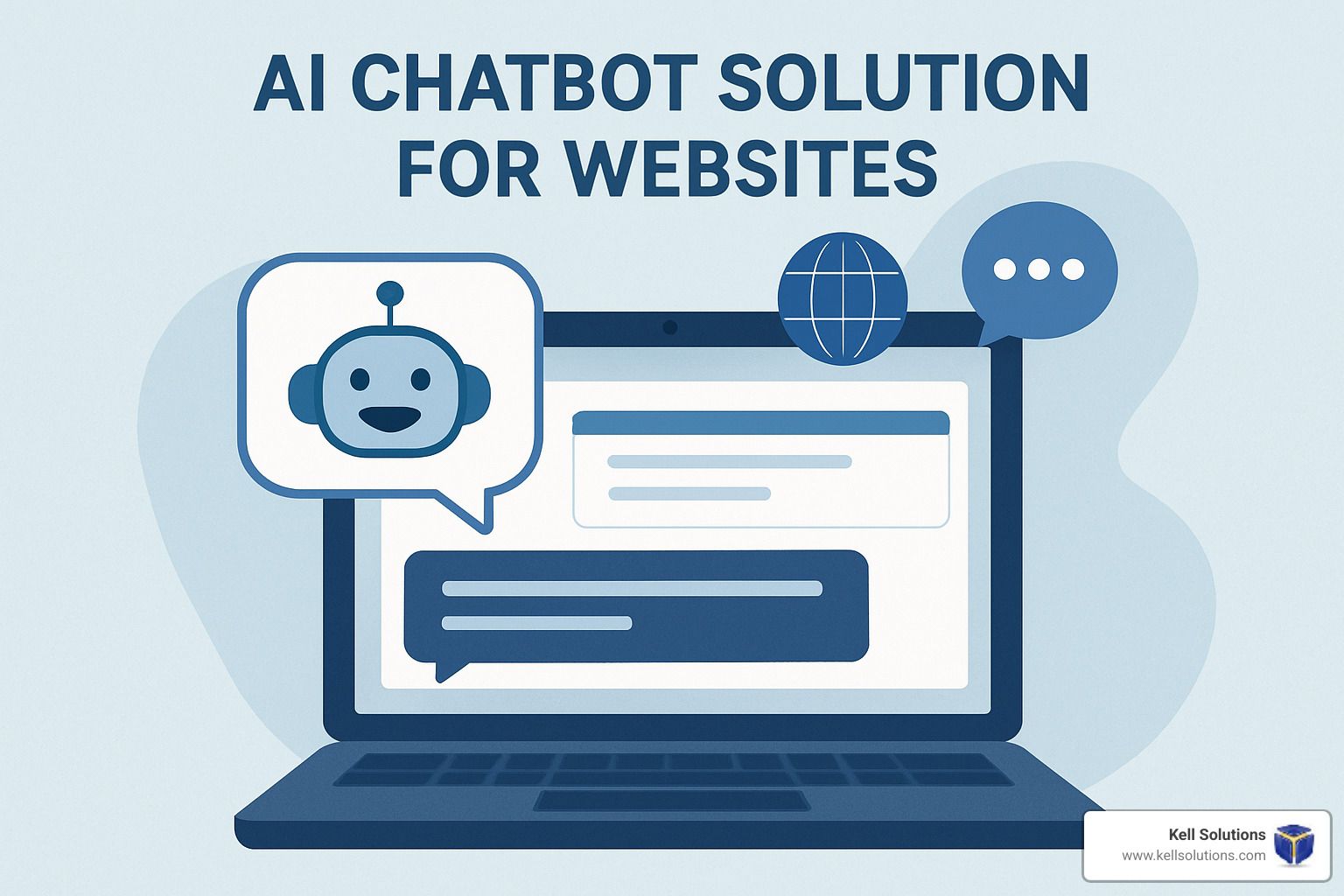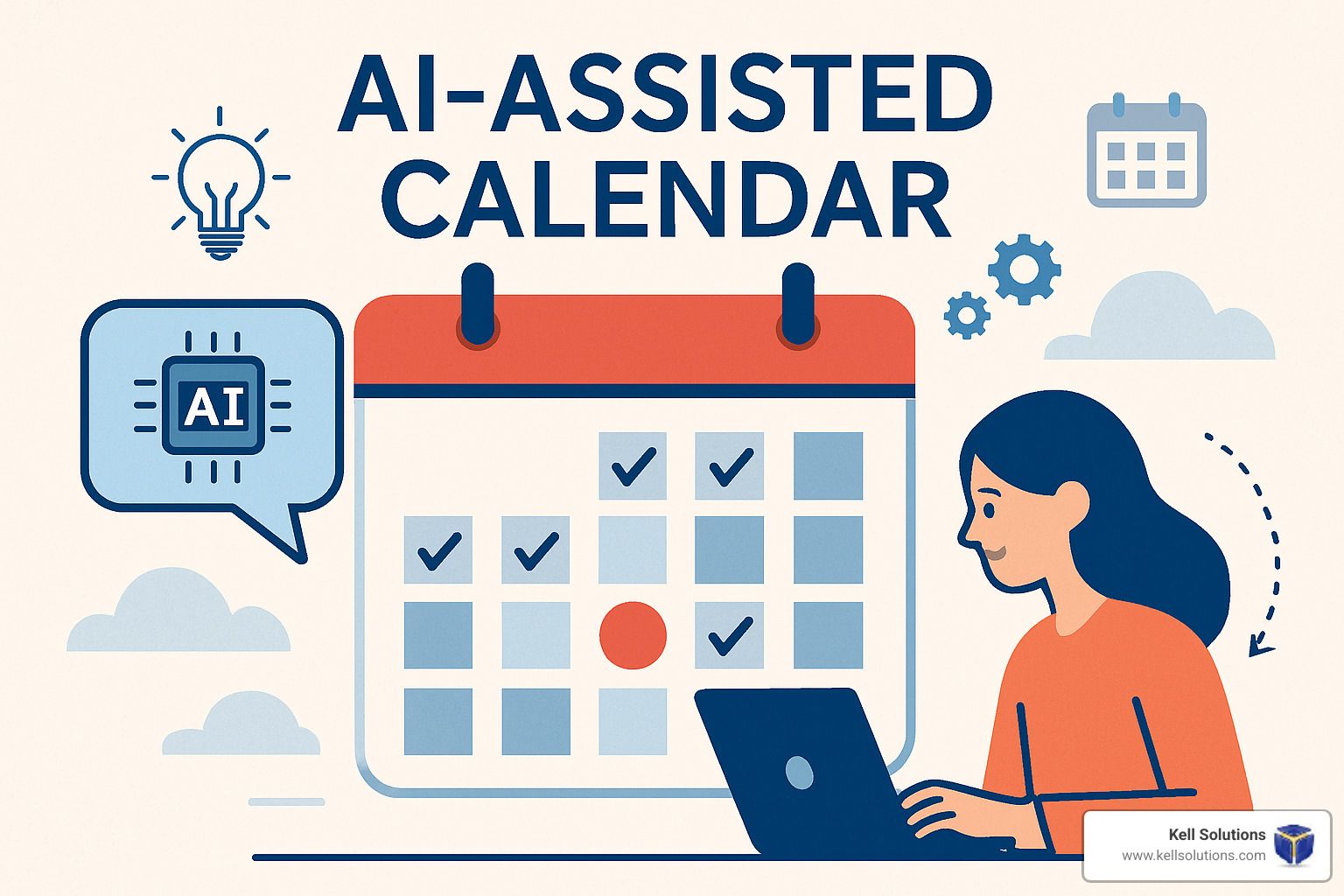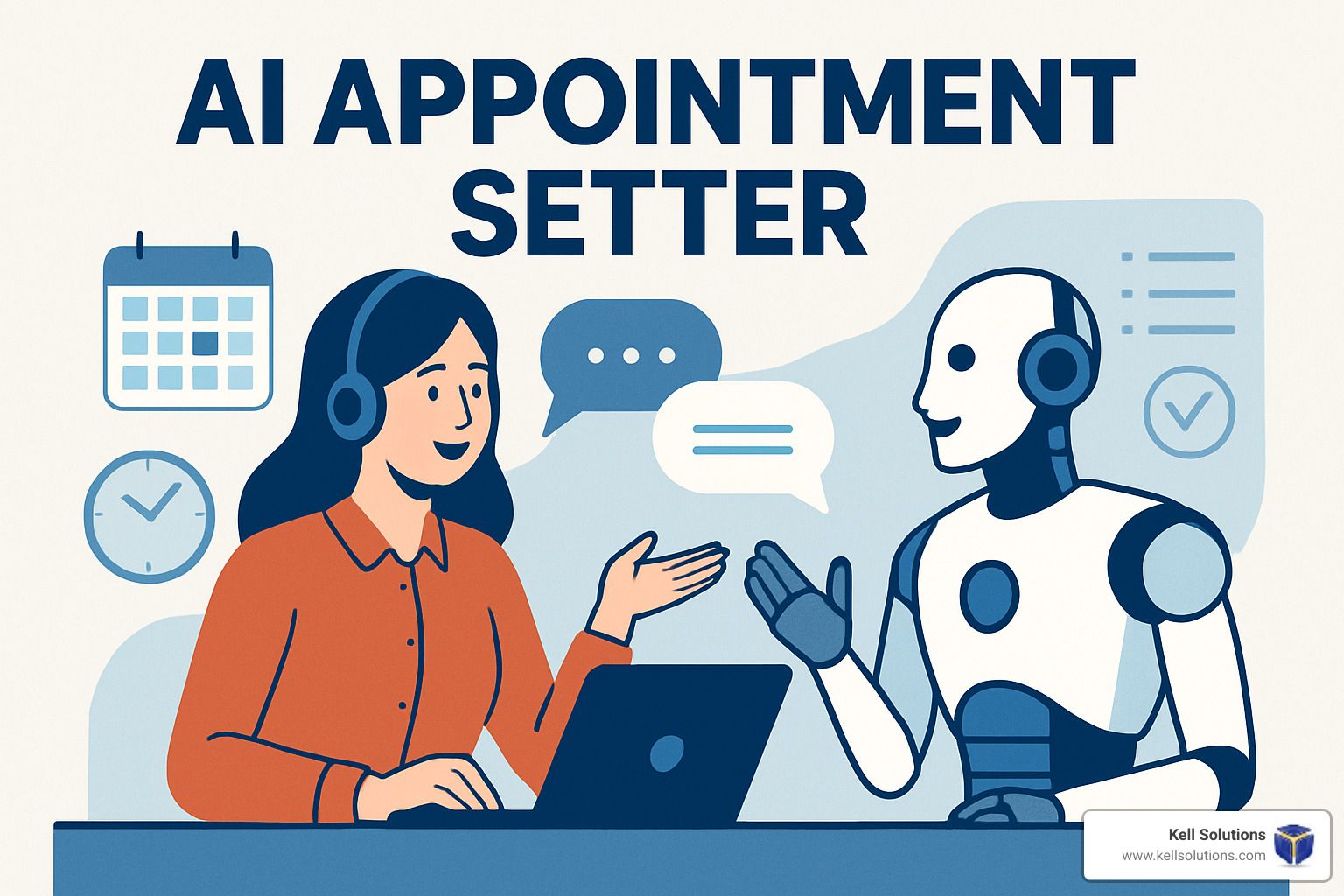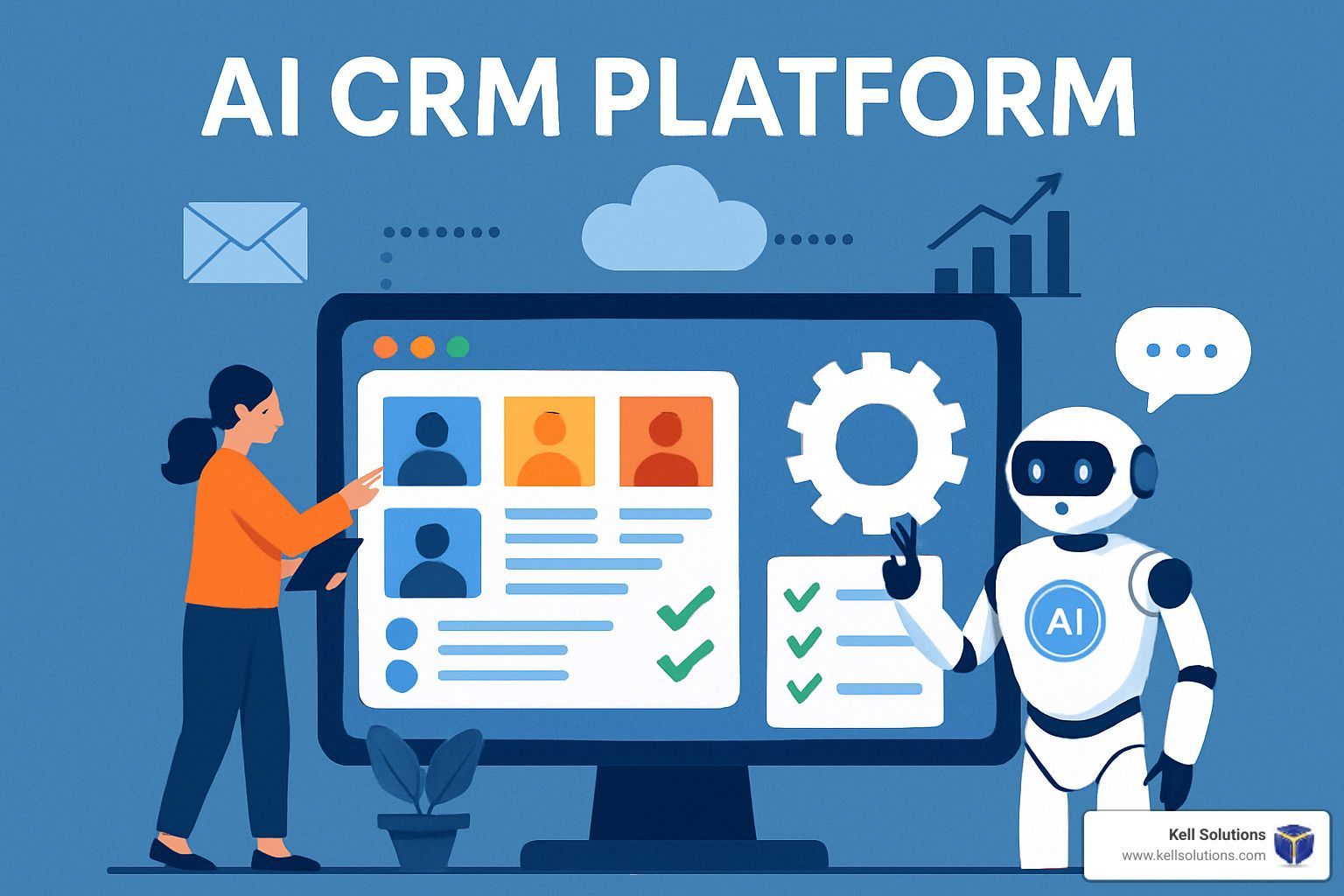Dialing Up Efficiency with AI Virtual Call Centers
Why AI Virtual Call Centers Are Changing Customer Service
An ai virtual call center is a cloud-based customer service platform that uses artificial intelligence to automate call handling, route inquiries, and provide 24/7 support without traditional physical infrastructure or full-time human agents.
Key AI Virtual Call Center Solutions:
- Virtual Agents- AI-powered chatbots and voicebots that handle routine inquiries
- Intelligent Call Routing- Smart distribution based on customer intent and agent skills
- Agent Assist Tools- Real-time coaching and response suggestions for human agents
- Automated Quality Assurance- AI-driven call monitoring and performance scoring
- Omnichannel Integration- Unified customer experience across voice, chat, email, and social media
- Predictive Analytics- Data insights to forecast call volumes and customer behavior
By 2031, conversational AI will handle 30% of customer interactions that would otherwise require human agents - up from just 2% in 2022. Companies using AI virtual call centers report up to 70% of calls handled without human intervention, saving approximately $5.50 per automated interaction.
The shift isn't just about cost savings. It's about meeting rising customer expectations for instant, personalized service around the clock. Traditional call centers struggle with staffing challenges, high turnover, and limited hours. AI virtual call centers operate 24/7, never get tired, and continuously learn from every interaction.
As the founder of Kell Web Solutions and creator of VoiceGenie AI, I've spent over 25 years helping small businesses streamline their customer communications through strategic technology solutions. Through my work developing AI-powered call handling systems, I've seen how an ai virtual call center can transform a struggling business into a customer service powerhouse that never misses an opportunity.

What Is an AI Virtual Call Center?
An ai virtual call center is a cloud-based customer service platform that uses artificial intelligence to handle customer interactions through advanced natural language processing, conversational IVRs, and generative AI technologies. Instead of requiring physical offices and dozens of full-time staff, these systems operate entirely in the cloud.
Think of it as having a team of tireless, multilingual customer service representatives who never need coffee breaks, never call in sick, and get smarter with every conversation. These AI agents understand context, learn from interactions, and provide personalized responses at any scale your business demands.
The magic happens through several integrated technologies working together. Speech recognition converts voice to text with remarkable accuracy. Natural language processing understands what customers really mean, not just the words they use. Conversational AI generates responses that sound genuinely human. Integration APIs connect seamlessly with your existing CRM systems and business tools.
According to the Zendesk AI-powered CX Trends Report 2024, teams can now automate more than 80% of customer interactions, regardless of complexity. This represents a massive leap from the old rule-based systems that could only handle simple, scripted responses.
AI virtual call center vs. traditional model
Traditional call centers tie you down with physical office space and on-premises hardware. You're limited by human agent availability and working hours. The capital expenditure for infrastructure can be crushing for small businesses. Quality assurance typically covers only 1-2% of calls because having supervisors listen to every conversation is impossible.
AI virtual call centers flip this entire model. They're cloud-based with no physical infrastructure needed. They provide 24/7/365 availability with instant scalability. The operational expenditure model gives you predictable costs that grow with your business. Real-time analytics cover 100% of interactions, not just a tiny sample.
Key building blocks of an AI virtual call center
Speech recognition forms the foundation. Modern AI systems achieve 95%+ accuracy in converting speech to text, even with background noise, thick accents, and industry-specific terminology.
Intent detection goes far beyond simple keyword matching. Advanced machine learning models identify what customers actually want, not just what they literally say. When someone calls and says "I'm having trouble with my account," the system understands whether they mean billing issues, login problems, or service disruptions.
API integration connects your AI virtual call center to existing business systems. Customer data flows seamlessly between your CRM, billing system, scheduling software, and the AI platform.
Security layers protect sensitive customer data with enterprise-grade encryption, access controls, and compliance measures.
Core Features & Business Benefits
The magic of an ai virtual call center happens when sophisticated technology meets real business needs. These aren't just fancy features - they're game-changers that transform how companies connect with their customers.

Intelligent call routing eliminates the dreaded phone tree maze. Instead of customers pressing endless buttons, AI listens to what they actually say and routes them to the perfect resource. When someone calls saying "I'm really upset about my bill," the system doesn't just hear "billing" - it catches the frustration and routes them to a senior agent who specializes in resolving billing disputes.
Virtual agents and chatbots work like your most reliable employees, except they never call in sick or take vacation days. These AI assistants handle the routine stuff - booking appointments, answering common questions, and collecting customer information.
Agent assist tools turn good customer service reps into customer service superstars. The AI provides real-time coaching, suggests the perfect response, and even creates automatic call summaries. One automotive retailer found their agents became six times more likely to use proper scripts after implementing AI coaching.
Automated quality assurance changes everything about monitoring customer interactions. Traditional call centers can only review about 1-2% of calls manually. An ai virtual call center analyzes every single conversation for compliance, sentiment, and performance.
Predictive analytics helps you see around corners. The system studies patterns in your customer data to forecast busy periods, identify potential service issues before they explode, and suggest when to reach out proactively to customers who might need help.
The financial impact is impressive. Companies typically see cost reductions of about 60% through AI automation, while customer satisfaction scores jump by 27% thanks to faster resolutions and consistent service quality. For businesses ready to explore these capabilities, our AI-Driven Call Answering solutions offer a comprehensive starting point.
How AI Improves Routing, QA & Productivity
Smart routing goes far beyond simple keyword matching. Skill-based matching ensures every call lands with the right person. The AI maintains detailed profiles of each agent's strengths, current workload, and performance history.
Sentiment-triggered escalation acts as an early warning system. The moment AI detects rising frustration in a customer's voice, it can automatically flag the call for supervisor attention or route it to a specialist trained in de-escalation.
Automated performance scoring brings objectivity to quality assurance. Every call gets scored on consistent criteria - greeting quality, problem resolution, compliance adherence.
Customer-Facing Wins: Speed, Personalization, 24/7 Service
First-contact resolution becomes the norm rather than the exception. AI agents access complete customer histories, understand context from previous interactions, and can resolve most issues without transfers or callbacks.
Zero wait times mean customers connect immediately with help. True 24/7 availability serves customers across all time zones and schedules. Microsoft research shows nearly 90% of customers report that AI chatbots effectively resolve their issues when implemented properly.
Omnichannel Engagement & Role of Human Agents

Customer service today happens everywhere - and your ai virtual call center needs to keep up. Your customers might start asking questions on Facebook, switch to texting when they're on the go, then call for the final details. They expect you to remember everything they've already told you, no matter which way they reach out.
Seamless context preservation is where AI really shines. Imagine a customer who starts by chatting with your AI about booking an appointment, then calls later to reschedule. The AI agent already knows their preferences, previous conversation, and booking history.
The magic happens in how AI adapts its personality to each channel. Email responses tend to be thorough and professional, while chat interactions are quick and friendly. Phone conversations feel natural and conversational.
Smart channel routing takes this even further. Simple questions like "What are your hours?" get handled instantly through chat or text. Complex issues that need detailed explanation or emotional support automatically move to phone calls where human connection matters most.
Human-AI Collaboration in an AI Virtual Call Center
Here's what most people get wrong about AI in customer service - it's not about replacing humans. It's about making humans incredibly good at what they do best.
Agents become experience orchestrators rather than script-readers. Instead of spending their day answering "What's your return policy?" for the hundredth time, they focus on solving complex problems, building relationships, and handling situations that require creativity and emotional intelligence.
Think of AI as the ultimate copilot. While the human agent is talking with a frustrated customer, AI is quietly pulling up their account history, suggesting helpful responses, and even alerting the agent to important details they might miss.
Emotional intelligence amplification is where this partnership really pays off. AI handles the data crunching and routine tasks, freeing humans to do what they do best - understand feelings, read between the lines, and provide the kind of compassionate support that turns angry customers into loyal advocates.
One of the biggest wins is reduced agent burnout. When agents aren't stuck doing repetitive tasks all day, they actually enjoy their work more. Happy agents provide better service - it's that simple.
By 2025, most customer service teams will work this way - with AI handling routine tasks and humans focusing on relationship building and complex problem-solving.
Implementing & Scaling Your AI Virtual Call Center
Getting started with an ai virtual call center doesn't have to be overwhelming. After helping countless businesses transform their customer service operations, I've learned that success comes down to smart planning, gradual implementation, and keeping your team engaged throughout the journey.
The biggest mistake I see companies make? Trying to do everything at once. Think of implementing AI like learning to drive - you don't start on the freeway during rush hour. You begin in an empty parking lot, master the basics, then gradually take on more challenging scenarios.
Start with Your "Why"
Before diving into the technical details, get crystal clear on what you're trying to achieve. Are you drowning in after-hours calls? Struggling with inconsistent service quality? Looking to reduce costs while improving customer satisfaction? Your specific goals will shape every decision that follows.
The Foundation: Clean Data and Clear Processes
The success of your ai virtual call center depends more on your data quality than your technology choice. AI systems are like eager students who learn from everything you show them. Feed them messy, outdated information, and that's exactly what they'll serve your customers.
Start by cleaning up your customer database, organizing your knowledge base, and documenting your current processes. This prep work isn't glamorous, but it's what separates successful implementations from frustrating ones.
For comprehensive guidance on navigating these challenges, check out our AI Call Center Setup Guide: Essential Insights & Tips , which walks through real-world implementation strategies.
Building an AI Virtual Call Center in 6 Steps
Step 1: Needs Analysis and Goal Setting
Start by analyzing your current call patterns. What are your most common inquiries? When do call volumes peak? Which issues frustrate customers most? This analysis reveals exactly where AI can make the biggest impact.
Step 2: Platform Selection and Vendor Evaluation
Choosing the right platform is like picking a business partner. Focus on scalability, integration capabilities, and ongoing support rather than just flashy features. Test potential platforms with your actual data and real scenarios.
Step 3: Integration and Technical Setup
Connect your new ai virtual call center with your existing business tools. Set up monitoring dashboards from day one for real-time visibility into performance.
Step 4: Knowledge Base Development and Training
Create comprehensive knowledge repositories that cover not just what to say, but how to say it in your company's voice. Develop conversation flows for common scenarios while maintaining flexibility for unexpected questions.
Step 5: Pilot Launch and Testing
Launch with a specific customer segment or interaction type. Monitor everything closely and gather feedback from both customers and agents. Be prepared to make quick adjustments.
Step 6: Scale and Continuous Improvement
Once your pilot proves successful, gradually expand AI capabilities. Establish regular review cycles to assess performance and identify new opportunities.
Security, Compliance & Ethical Considerations
Security in an ai virtual call center isn't just about protecting data - it's about maintaining trust. Implement end-to-end encryption and create clear policies for data retention and deletion.
Always let customers know when they're talking to an AI agent. This transparency builds trust and prevents awkward moments. Provide easy paths for customers who prefer human interaction.
Set up automated systems to monitor AI decisions for bias, accuracy, and compliance. Regular audits help catch issues before they become problems.
It's fascinating that customer service has evolved from the oldest documented customer complaint - a 3,700-year-old clay tablet from ancient Babylon - to today's sophisticated AI systems. The fundamentals haven't changed: people want quality products, fair treatment, and responsive service.
Top Platforms & Future Outlook
The ai virtual call center market has exploded with options, from simple chatbots to sophisticated conversation intelligence platforms.
Enterprise platforms dominate the high-volume market with comprehensive feature sets and bulletproof security. Specialized solutions are carving out niches with innovative approaches like no-code conversation builders. Open-source frameworks appeal to organizations with strong technical teams who want maximum customization.
The pricing models vary wildly. Some charge per conversation, others per agent seat, and many use hybrid approaches that scale with your business.
Choosing the Right AI Virtual Call Center Platform
Scalability should be your first consideration. Can the platform handle your Black Friday call surge or unexpected traffic spikes? Look for elastic scaling that grows with your needs without breaking your budget.
The real cost isn't the sticker price - it's the total cost of ownership over three to five years. Factor in implementation time, training requirements, ongoing maintenance, and integration updates.
Integration capabilities can make or break your implementation. Your ai virtual call center needs to talk to your CRM, helpdesk, billing system, and other tools. Strong APIs and pre-built connectors save months of development work.
Vendor stability matters more in AI than traditional software. Check their customer base, financial backing, and commitment to innovation.
Future Trends: Multimodal AI & Autonomous Service
The future of ai virtual call centers is arriving faster than most people realize. We're moving beyond simple voice and text to multimodal AI that processes everything simultaneously. Imagine a customer sending a photo of a broken appliance while describing the problem verbally - and the AI understanding both perfectly.
Proactive engagement will flip customer service on its head. Instead of waiting for problems, AI systems will predict issues and reach out first. Hyper-personalization means every customer gets a unique experience custom to their communication style, preferences, and history.
The agent-as-manager shift transforms human roles dramatically. Instead of handling individual calls, agents will orchestrate teams of specialized AI agents.

Autonomous service resolution represents the ultimate goal - AI systems that handle complete customer journeys from first contact to final resolution.
What excites me most about this future is how it frees human agents to do what they do best - build relationships, solve complex problems, and provide the emotional intelligence that no AI can replicate.
Frequently Asked Questions about AI Virtual Call Centers
Let's address the most common questions business owners ask when considering an ai virtual call center for their operations.
How much call volume can AI contain before a human is needed?
The sweet spot for AI containment typically falls around 70% of total call volume, though this varies significantly based on your industry and the types of questions your customers ask. If you're running a medical practice with appointment scheduling and basic questions, you might see AI handling 80-90% of calls without breaking a sweat.
Here's what we've learned from real implementations: Simple, routine inquiries like checking account balances, booking appointments, or answering frequently asked questions are perfect for AI. These interactions follow predictable patterns that AI systems master quickly.
The trickier situations involve emotional complexity or unique problem-solving. When a customer is frustrated about a billing error or needs help with an unusual product issue, that's where human agents shine. The good news? AI doesn't just hand off these calls - it gathers all the relevant information first, so your human agent starts the conversation fully prepared.
Think of it this way: AI handles the routine stuff so your human team can focus on the conversations that really matter. It's not about replacing people - it's about making sure everyone's time is used wisely.
Will AI replace human agents entirely?
This is probably the biggest concern we hear, and here's the honest answer: AI will change agent roles, not eliminate them. In fact, many agents find their jobs become more interesting and less stressful with AI support.
Human agents are evolving into experience orchestrators- they're becoming the conductors of a customer service symphony rather than just answering phones all day. They handle the complex emotional situations, build relationships with key customers, and manage the AI tools that handle routine tasks.
The research backs this up. 75% of customer experience leaders expect agent roles to shift toward AI management and specialized problem-solving by 2025. Instead of spending their day answering "What are your hours?" for the hundredth time, agents tackle challenging problems that require creativity and empathy.
We've seen this change with our VoiceGenie AI implementations. Agents report feeling less burned out because they're not stuck in repetitive conversations. They spend more time on meaningful interactions that actually make a difference for customers.
The future isn't humans versus AI - it's humans with AI, and that combination is incredibly powerful.
What data is required to train an AI virtual call center effectively?
Getting your ai virtual call center up and running effectively depends on feeding it the right information from the start. Think of training AI like teaching a new employee - the better the training materials, the faster they'll become productive.
Your historical call data is pure gold for AI training. If you have recordings or transcripts from past customer calls, these show the AI what real conversations look like in your business. Don't worry if you don't have years of data - even a few months of call patterns can provide valuable insights.
Your knowledge base content is equally important. This includes everything from product specifications and pricing information to company policies and troubleshooting guides. The AI needs access to the same information your human agents use to answer questions accurately.
Customer data integration makes interactions feel personal rather than robotic. When the AI can access account information, purchase history, and previous interactions, customers don't have to repeat themselves or explain their relationship with your company.
Performance metrics from your current customer service operations help the AI understand what success looks like. Resolution rates, customer satisfaction scores, and common escalation triggers all help shape how the AI handles different situations.
The key insight we've learned from deploying these systems: quality matters more than quantity. Clean, well-organized data from six months of operations often works better than years of messy, inconsistent records. Start with what you have, and the AI will continue learning and improving from every new interaction.
Conclusion
The transition to ai virtual call centers isn't just about keeping up with technology trends - it's about fundamentally reimagining how businesses connect with their customers. We've seen how AI-powered customer service creates efficiency, satisfaction, and growth opportunities that traditional call centers simply can't match.
The numbers speak for themselves: up to 70% of calls handled without human intervention, saving approximately $5.50 per automated interaction, while simultaneously boosting customer satisfaction scores by 27%. These represent real businesses changing frustrated customer experiences into delightful interactions that build loyalty and drive growth.
The beauty of an ai virtual call center lies in its ability to provide 24/7/365 availability with instant response times, seamless omnichannel experiences, and real-time analytics that continuously improve performance.
At Kell Solutions, we've witnessed how businesses across Southern California have revolutionized their customer relationships through AI-powered solutions. Our VoiceGenie AI platform doesn't just automate customer service; it improves the human touch that makes small businesses special while ensuring no opportunity ever slips through the cracks.
The path forward is clearer than you might think. Start by assessing your current customer service pain points- those moments when customers hang up in frustration or opportunities disappear into voicemail. Define what success looks like for your specific business, whether that's reducing response times, extending service hours, or capturing more leads.
Begin with a focused pilot program that tackles your biggest challenge first. Let the AI prove its value in one area before expanding to others. Plan for continuous optimization because the real magic happens when your AI system learns and improves from every interaction.
The future of customer service is unfolding right now, and it's powered by intelligent systems that work tirelessly alongside skilled human agents. Your competitors are already exploring these possibilities - don't let them gain the advantage while you're still playing catch-up.
Ready to find how AI can revolutionize your customer service experience? Request a free VoiceGenie AI demo and see exactly how we can help ensure you never miss another customer opportunity.
For deeper insights into changing your entire customer engagement strategy, explore our comprehensive guide on AI-Driven Customer Engagement Solutions.
📚 About the Author
Gregg Kell is a seasoned digital marketing strategist and founder of Kell Web Solutions, Inc., helping professional service firms grow through innovative AI-powered solutions like VoiceGenie AI. With over 20 years of experience in web development, lead generation, and business automation, Gregg is passionate about helping small businesses maximize growth and profitability through cutting-edge technologies.
When he's not helping businesses boost their bottom line, Gregg enjoys life by the beach in Laguna Beach, California, with his wife Debbie, celebrating over 40 years of marriage and entrepreneurial trips.
👉 Explore More from Gregg:
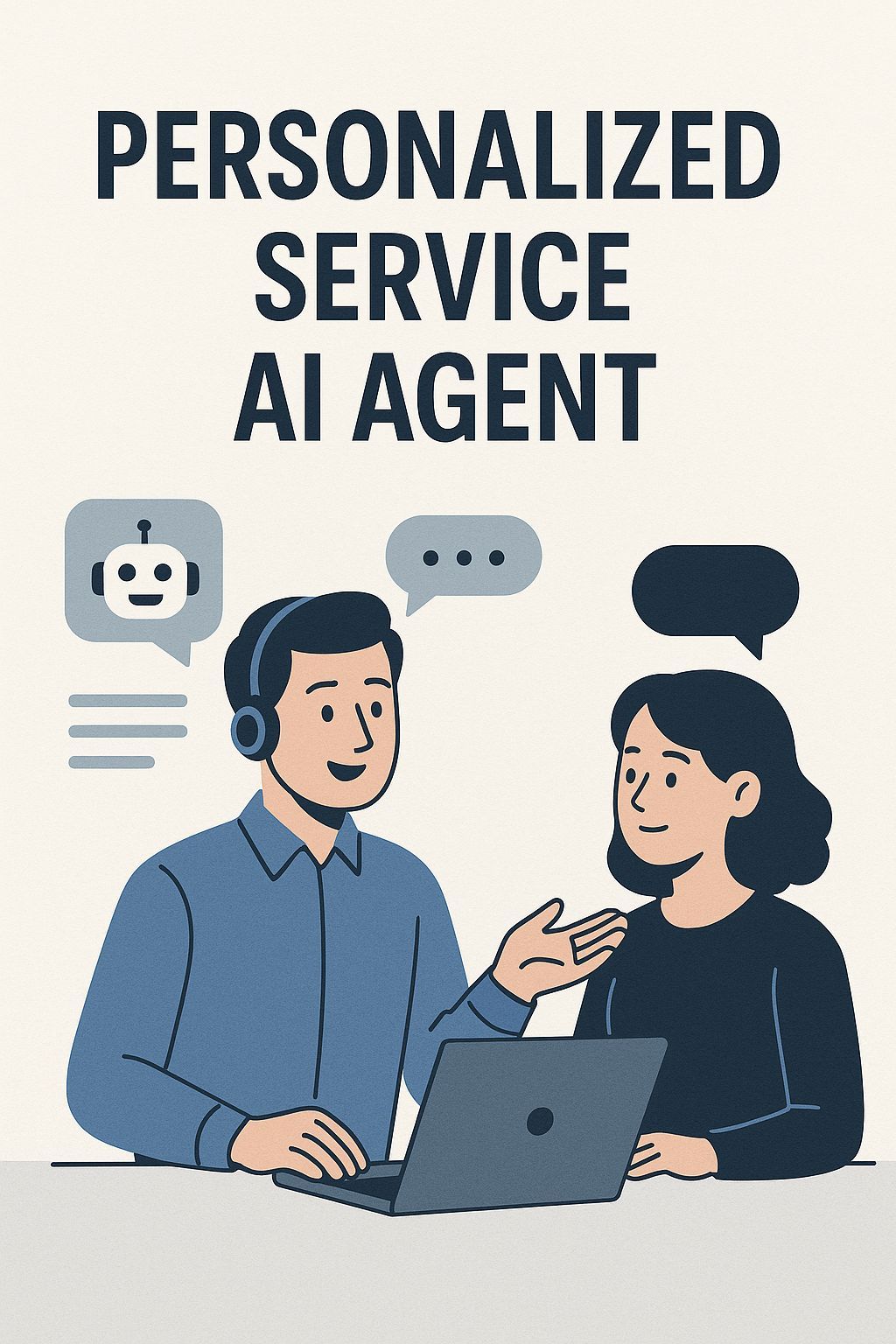

Orange County HVAC Google AI Overview Domination: 7 Proven Strategies to Capture Featured AI Results






